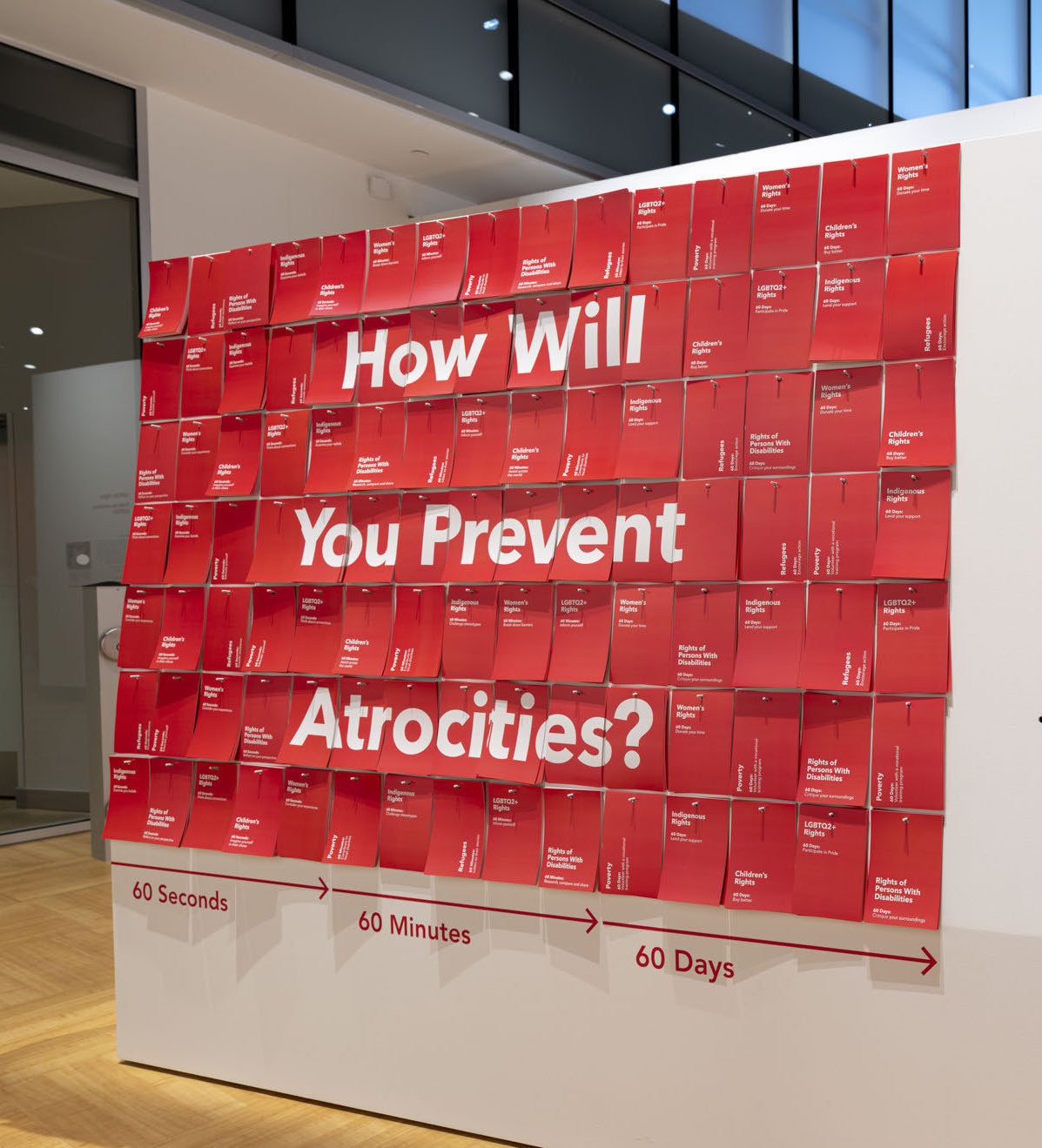Contact
Language
To make a secure online donation, please click the button below

.JPG)
More than 70 years after the Holocaust, genocide and other violent atrocities remain a threat to global peace and security. Since 2008, the Auschwitz Institute for the Prevention of Genocide and Mass Atrocities (AIPG) has worked to build a world that prevents genocide, driven by the knowledge that governments, institutions, and individuals can act to save lives before, during, and after the outbreak of mass violence. However, doing so successfully requires training, technical know-how, resources, and a commitment to action among multiple stakeholders. The lessons of the Holocaust are central to our approach to prevention, inspiring our mission of building a world where never again will people be targeted for violence and death due to their identity.
To walk the grounds of the concentration camp, as well as the vast spaces of the extermination camp at nearby Birkenau, is to feel the presence of an absence. An absence of life and voices, as the camps were the site of death for 1.1 million victims of Nazi extermination. An absence of a world which closed its eyes to the suffering of others and, by its inaction, gave rise to this staggering manifestation of our inhumanity. It is this “power of place” that led AIPG to seek its foundational partnering relationship with the Auschwitz-Birkenau State Museum in 2007. We recognized that holding our genocide prevention seminars at this internationally-recognized site of memory and atrocity would give urgency to the preventive work which we were trying to advance in those seminars. To study genocide prevention, at a place that gives direct evidence to the destructive reality of what happens when prevention fails, offers a unique and powerful immediacy to the teaching and learning experience. While Auschwitz remains the primary location for our core program of global seminars, we also recognize that the power of Auschwitz is not bounded by its place or location. The power of Auschwitz – its reality, its memory, its legacy – transcends place and inspires the work of AIPG across the globe. Our regional and international programs to support states to develop or strengthen mechanisms for the prevention of genocide and mass atrocities remain grounded in the power of Auschwitz, regardless of their locations. Our mission – to build a world that prevents genocide and other mass atrocities – is rooted in the history of Auschwitz and its meaning for our contemporary world.
The concept of the Auschwitz Institute for the Prevention of Genocide and Mass Atrocities (formerly: Auschwitz Institute for Peace and Reconciliation) was introduced to the public at the January 2004 Stockholm International Forum, [Preventing Genocide: Threats and Responsibilities,] where it received strong backing from government, academic, religious, and business leaders. The establishment of AIPG as a nonprofit in Poland was approved at the June 2005 meeting of the International Auschwitz Council of the Auschwitz-Birkenau State Museum, and AIPG acquired legal status as a 501(c)(3) in the United States in January 2007. Our first program—the Raphael Lemkin Seminar for Genocide Prevention, Global Edition—was launched in 2008 and our work has since spread across the globe.